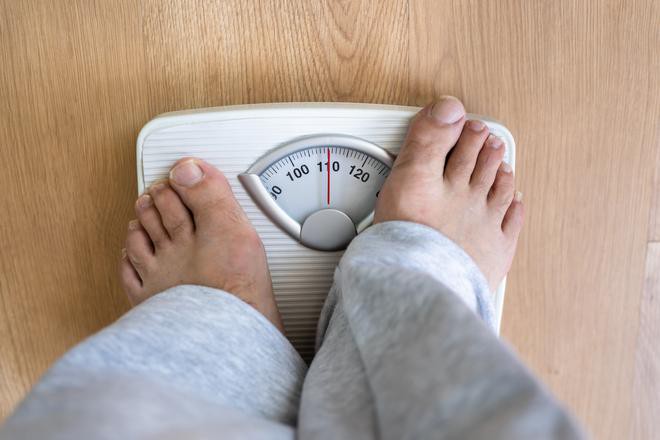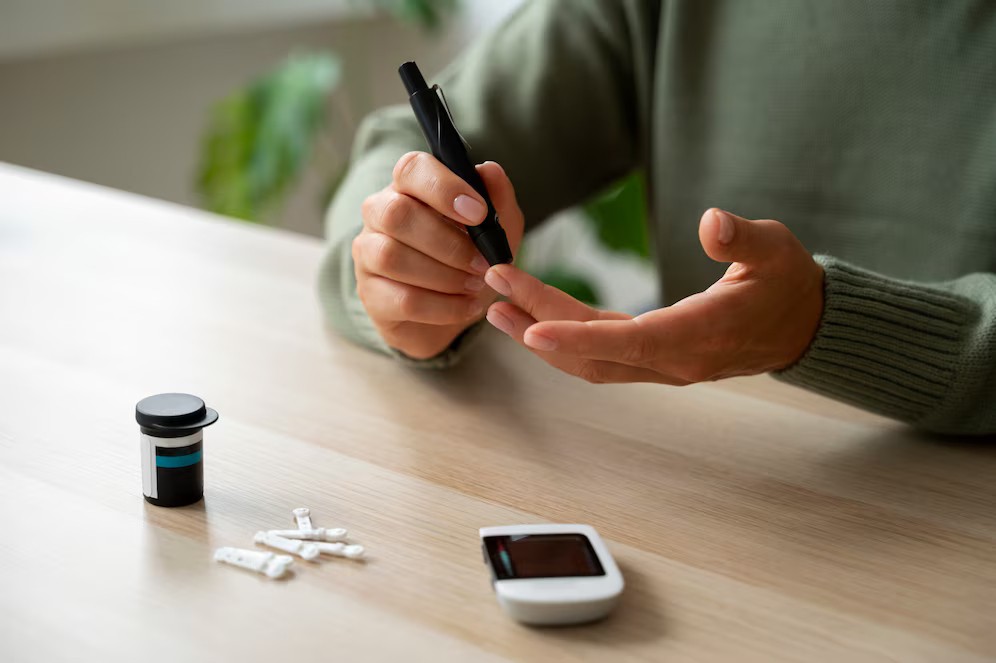The use of the drug leads to weight loss, and some benefits to the heart and kidney have also been noted, according to doctors. Semaglutide is available in oral (Rybelsus) and injectable (Ozempic/Wegovy) forms.
The injectables result in weight losses of about 10 to 15%
A few years ago, one word began to do the rounds amongst people with diabetes and those struggling to lose weight: Ozempic. Touted as a wonder drug, it soon took the world by storm. Celebrities such as Elon Musk revealed that they had used it. Reports of “Ozempic parties” followed, and, as the drug’s popularity surged, supply became a drag in various countries.
Ozempic, known generically as semaglutide, is an injectable prescription drug. It was approved in 2017 by the United States Food and Drug Administration (FDA) for use in adults with type 2 diabetes. In 2021, the FDA approved of another injectable semaglutide, Wegovy, for chronic weight management in adults with obesity/overweight and with at least one weight-related condition (such as high blood pressure, type 2 diabetes, or high cholesterol). Ozempic and Wegovy are manufactured by Danish drugmaker Novo Nordisk.
So what is semaglutide and who uses it in India? Semaglutide belongs to the class of drugs called Glucagon-like peptide-1 (GLP-1) receptor agonists. This drug mimics the actions of the hormone GLP-1 made by the small intestine, which the gut releases after eating. What this does is slow down digestion and reduce the appetite, while triggering the pancreas to release more insulin.
The use of the drug therefore, leads to weight loss, and some benefits to the heart and kidney have also been noted, explains V. Mohan, chairman of Dr. Mohan’s Diabetes Specialities Centre, Chennai.
Semaglutide is available in oral (Rybelsus) and injectable (Ozempic/Wegovy) forms. The injectables result in weight losses of about 10 to 15% in patients, Dr. Mohan says. “The daily oral tablet (Rybelsus), which was launched in India a few years ago, is a breakthrough, though it cannot be compared with the effectiveness of the injectable forms that are still not available in the country,” he says.
In a country that has an estimated 10.13 crore people with diabetes and where the prevalence of abdominal obesity is estimated to be 40% among women and 12% in men, a drug like semaglutide has attracted widespread interest, though costs remain a significant barrier to its use, while side effects deter some patients.
Diabetes control: doctors
Doctors across India have been prescribing oral semaglutide to patients for two years now, and say they have seen results in terms of diabetes control and weight management.
Anoop Misra, chairman, Fortis CDOC Hospital for Diabetes and Allied Sciences in Delhi, says he has seen a rise in the number of patients who want to start on Rybelsus. “An increasing number of patients are asking for prescriptions for it. Most have heard about it from relatives or friends abroad who have used it, and where these drugs are popular,” he says.
While the weight loss factor often overshadows the diabetes management aspect, and has led to a surge of interest from patients looking for a quick fix, doctors emphasise that this drug is not for simple weight management and is not a first-line option.
“Diabetes is not a single disease and it comes with a host of complications, all of which need aggressive management. Semaglutide, with the added benefits it gives as far as renal, cardiovascular and hepatic issues are concerned, is primarily used by physicians to treat diabetes itself. The weight loss benefits are just the cherry on top for many diabetes patients for whom weight gain, because of insulin use is a concern,” says Mathew John, a senior endocrinology consultant, in Thiruvananthapuram.
Also, not everyone who wants the drug is eligible, say doctors: “While I receive 15-20 enquiries a week, only 2-3 patients are actually eligible for it. We prescribe it to those with diabetes who are at a high risk for cardiovascular disease, since the drug reduces the risk of heart attack, stroke, and cardiovascular deaths in such adults,” says Mahesh D. M., consultant in endocrinology at Aster CMI Hospital in Bengaluru.
“We do not recommend the drug for people just looking to shed 10-15 kg. This is a drug for the obese, for whom weight loss is an uphill task even with a healthy diet and moderate physical activity. We generally see that along with a healthy diet and physical activity, semaglutide leads to significant weight loss in many. At the same time, I have also seen patients for whom the drug did not work,” says Akhil Krishnan, Associate Consultant in Endocrinology, Kimshealth in Thiruvananthapuram.
For those taking the drugs, experiences differ. While many swear by it, for some, the side effects are an issue.
Since the drug works on the stomach, the most common side effects are bloating, nausea, and vomiting. In rare cases, Dr. Mohan says it can cause stomach paralysis, inhibit the stomach from contracting, and pancreatitis.
Between 5 and 10% of patients cannot tolerate the side effects and discontinue the drug, says K.V.S. Hari Kumar, consultant endocrinologist at Fernandez Hospitals, Hyderabad and honorary secretary of the Endocrine Society of India.
Patient experiences
For 47-year-old Arundati in Hyderabad, the drug has worked wonders. On semaglutide for six months now, she experienced nausea and vomiting initially, but says her body eventually adapted. “I have lost about 10 to 12 kgs over six months. The weight loss has also allowed me to reduce my thyroid medication,” she said.
Saumya, also from Hyderabad, began Semaglutide after being unable to lose weight despite intermittent fasting. “After starting the drug, my hunger and cravings reduced, and I lost seven kilograms in the first month, and six in the second.” Additionally, her blood sugar levels stabilised. She did experience acidity as a side effect.
To help counter side effects, doctors say they start with a small dose and build it up gradually. “We start at a low dosage of 3 mg, and escalate over time. The biggest advantage is not weight loss but the fact that you can reduce insulin by almost 80%,” says K. Jothdev a diabetes specialist, who has around 1,500 patients on semaglutide in his four comprehensive diabetes centres in the southern districts.
Arun, a patient from Bengaluru, was prescribed semaglutide because he was reluctant to start insulin. Arun, who is obese and has diabetes, says he started on a 3 mg dose. “After six weeks, my sugar levels and blood pressure were under control, and I had lost almost 5% of my baseline weight in three months. Although I had nausea and vomiting, the symptoms subsided after a while. The drug reduced my appetite and I felt full with very little food. My doctor has now increased the dose, and I have been advised lifestyle changes,” the 40-year-old says.
Doctors say the obesity crisis in India – National Family Health Survey 5 data reveals that obesity stands at 24% among women and 23% among men – needs to be addressed. Obesity is known as the mother of all diseases, says S. Chandrasekar, professor and head, Department of Medicine, Government Stanley Medical College. “At least 40% of those with diabetes are either overweight or obese. When patients with diabetes lose 15% of their body weight from the baseline, it can result in remission of blood sugar levels. Many of my patients have lost 10 to 15 kg in nine months to 1.5 years. The drug not only brings down blood sugar levels but also blood pressure as a result of weight loss, and improves physical agility over a period of time.”
But not everyone had an exemplary experience. Gopi, a 50-year-old media consultant in Thiruvananthapuram, who is obese, has diabetes, and sleep apnoea, found his weight loss journey difficult, given his hectic work schedule. He was prescribed Rybelsus prior to a bariatric surgery. However, he could not follow the drug regimen due to gastric issues. Despite his experience though, he plans to get back on the drug soon.
Chitra, a 38-year-old woman with a BMI of 32 and a history of gallbladder issues, which made her susceptible to pancreatic problems, experienced vomiting soon after she was put on semaglutide. “After three weeks, I had severe abdominal pain, which developed into pancreatitis. I required hospitalisation and medication was discontinued. My doctor said it is unclear whether semaglutide or the gallstone history caused the pancreatic inflammation. My treatment has now been switched to insulin.”
Cost remains a barrier
Costs, however, remain a major bar to the drug’s access. Rybelsus comes in three doses: 10 of the 3 mg tablets sell for ₹3,170; 7 mg costs ₹3,520; and 14 mg ₹3,870; says B. Thirunavukkarasu, president of Bengaluru District Chemists and Druggists Association. Even at the lower end dosage of 3 mg, 30 tablets a month work out to nearly ₹10,000 a month – a significant cost in a country where out-of-pocket expenditure on health, as a percentage of total health expenditure, continues to remain high, at nearly 40%.
Chemists across States say that Rybelsus is sold only as a prescription drug, and, as its cost is high, sales are modest.
A black market however has emerged, warns Shivam Sharma, head of department and consultant, internal medicine & diabetology, SHALBY Sanar International Hospitals. “There are dangers associated with self-medication. Users should know that each patient has to be medically evaluated before being prescribed this drug as it can interfere with the digestive process and can cause sudden weight loss along with low sugar levels and electrolyte imbalances,” he says. Media reports also indicate a flourishing grey market in imports and alternatives.
This is also a drug that patients have to take lifelong. “For those who do not develop any complications, we prescribe and adjust the medications based on their sugar levels lifelong, just like any other diabetes drug,” says Subrata Das, Head of the Department of Internal Medicine and Diabetology at Sakra World Hospital.
The weight loss effects, however, may reverse: patients may put on weight again, though they can attempt to keep the weight off with lifestyle modifications or other medications, he points out.
In many ways, semaglutide is and may continue to remain a miracle drug for some time to come. New research and studies currently underway indicate the drug could be used to treat a wide range of illnesses linked to heart failure, arthritis, Alzheimer’s, and even cancer, with possible benefits for cognition and nicotine dependence too.
For those who can and do want to access the injectable forms in India, however, there may be a wait of several months, though Indian drugmakers are now joining the race for weight-loss anti-obesity drugs. Novo Nordisk’s Wegovy has so far not been approved in India, and while rival drugmaker Eli Lilly was green-lighted for its drugs, Mounjaro/Zepbound (active ingredient – tirzepatide) for import and marketing in July, pending final approval, it is not expected to launch until perhaps next year.





